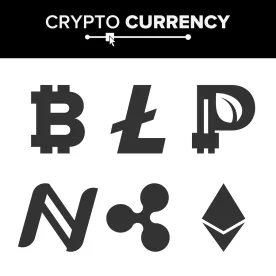On July 25, the U.S. Securities and Exchange Commission (SEC) issued its most comprehensive public guidance to date on digital assets such as cryptocurrencies and tokens. Key points from the guidance are:
-
Initial Coin Offerings (ICOs) are required to be registered with the SEC if the digital assets are securities offered or sold in the U.S.
-
Digital assets can be evaluated for securities status using traditional securities law criteria
-
Automated functions through smart contracts or other code remain subject to securities laws
-
Companies dealing in digital assets should consider seeking counsel as to whether the digital assets are securities
-
Companies dealing in digital currencies may need to register as broker-dealers, securities exchanges, or alternative trading systems
-
Companies investing in digital assets and advising on investment may need to register as investment companies or investment advisers
A “cryptocurrency” is a currency that is not issued by a government and is available as a means of exchange (and perhaps a storehouse of value). Bitcoin and ethereum are the best known examples, but new cryptocurrencies are created regularly. Many of these cryptocurrencies are created by private businesses for commercial purposes.
In an ICO, a new digital asset – commonly called a “coin” or “token” – is offered in exchange for bitcoin, ethereum or other value. Often these assets do not represent an interest in the profits of the issuer, but instead a potential means to transact in a new technology system to be created by the issuer. Typically, the coins offered in an ICO are described in a white paper with information that is quite limited, compared to a prospectus used in an initial public offering of securities. Highly publicized surges in the value of previously issued digital assets have increased demand for ICOs. Some have argued that ICOs are crowdfunding campaigns and not subject to the jurisdiction of the SEC because the issuer is outside of the U.S.
The guidance explains that tokens issued by The DAO in order to create a blockchain-based venture capital fund were, in fact, securities. (The DAO is an unincorporated entity set up as a decentralized autonomous organization.) The SEC concluded from its investigation that DAO tokens were subject to its jurisdiction because they were offered for sale in the U.S. In reaching its conclusion, the SEC analyzed the tokens utilizing traditional investment-contract criteria and noted that investors purchased the coins with the expectation of earning profits from the efforts of others. This was not mitigated by the fact that projects that could be sponsored by The DAO could encompass services and goods to be used by token holders. Despite determining that the SEC had jurisdiction over DAO tokens, the SEC did not undertake an enforcement action against The DAO.
SEC Says the Security Status of Digital Assets Requires Individualized Analysis
The SEC did not conclude that all tokens and cryptocurrencies are securities, but confirmed the how the SEC would evaluate cryptocurrencies. The SEC also noted that form should be disregarded for substance and that economic realities should be a key to the analysis. Thus, any party contemplating a future ICO that is available to investors located in the U.S. should analyze the extent to which the offered asset could be considered a security. This analysis should reach the business model underpinning the offered assets and not be limited to the white paper description of the offered digital assets.
The July 25 report also considered the obligations of companies that are interacting with similar digital assets. The SEC determined the platforms that traded DAO tokens appear to have been exchanges subject to separate registration and other regulatory requirements overseen by the SEC. The staff separately noted that individuals associated with The DAO may have become investment advisers and The DAO may have become an investment company had it commenced operations, which could have required additional registration and regulation.
These statements suggest that companies that are conducting business in digital assets with investors in the U.S. may be in violation of U.S. securities laws and may be required to register with the SEC and to comply with applicable securities regulations.



 />i
/>i

